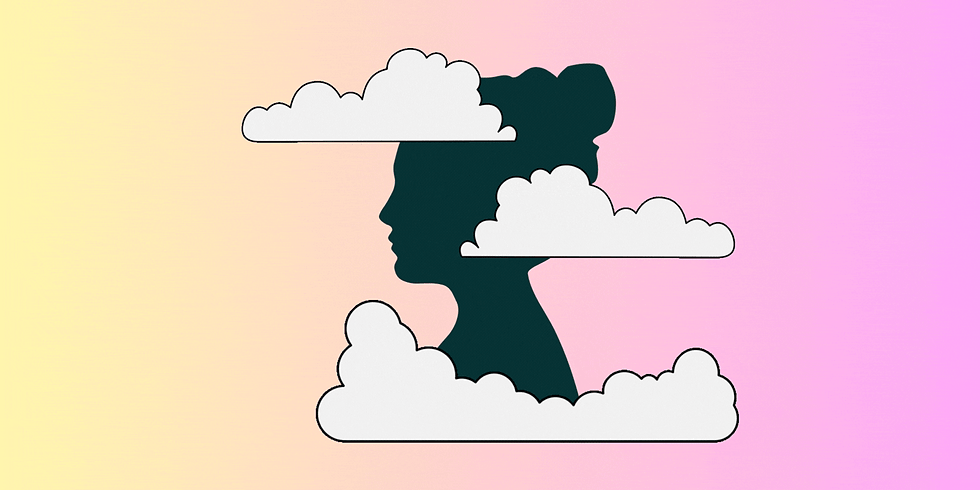Touch in the Time of Corona
- Team Nolmë Labs

- Sep 29, 2020
- 4 min read
- Tanya Gupta

Touch is one of the 5 major senses, and skin is the largest sensory organ, we possess as humans. Positive touch — any touch that elicits a positive reaction from another individual — is an instrumental part of our early development, and our mental health. We are hard-wired to desire touch since day one of our lives. Babies who are born prematurely and kept in the Neonatal Intensive Care Unit (NICU) also require touch; their mothers are encouraged to visit them a few times a day and hold them close to their chest. Psychologists, when discussing reinforcements, talk about touch as a primary reinforcer. Positive touch releases a hormone called oxytocin that helps alleviate stress and feelings of loneliness, and a neurotransmitter called serotonin which is the body’s natural antidepressant. A pat-on-the-back, a handshake, a caress of the arm – everyday incidental gestures that we take for granted – are fundamental to human communication, bonding and health.
But as we practice physical and social distancing, the human race faces the glaring issue of touch starvation. Touch starvation or touch deprivation is when physical touch is either limited or eliminated from one’s life. We must, at all times, maintain a minimum of 6 feet as well as physically isolate from others. Social touches such as handshakes with colleagues, or a hug with a friend, have diminished due for fear of COVID 19. Touch, a previously inconspicuous sense, has now been propelled into the spotlight, where every hug or kiss carries potentially frightening consequences. A previously unconscious and inconspicuous act is now one that carries grave risks and dangers.
Having discussed the importance of touch, it becomes increasingly obvious that touch deprivation will have negative consequences on one’s health. Being starved of touch may lead one to feel overwhelmingly lonely, deprived of affection, and feelings of depression. Our skin has billions of cells that perceive touch and big parts of our brains are devoted to making sense of this. Positive touch improves the immune system, regulates digestion, and helps one sleep well. A study by Grewen et. al. (2003) investigated the relationship between warm, physical contact among couples and reactivity to stress. One group of participants underwent a 10-minute period of hand-holding while watching a romantic video. Such participants demonstrated lower stress levels as indicated by systolic and diastolic blood pressure than did the control group. Another study by Cohen et. al. (2014) showed how hugging boosts one’s immunity. The researchers interviewed 404 healthy adults about their perceived daily social support and the frequency of receiving hugs, for 14 consecutive days. After the researchers intentionally exposed these participants to a cold virus, they found that participants who had reported more social support and being hugged more were far less likely to contract the virus and far more likely to feel positive and socially included. Such studies exemplify that experiencing touch is a significant contributor to maintaining good physical and mental health.
While physical contact has various direct health effects, it also affects mental health through other paths. As discussed previously, touch is essential for human communication. We convey a lot of emotional information through our touch, and our brains have coded them as such. Missing that substantial part of daily communication leads to feelings of isolation and social exclusion.
Technology to the rescue
Though nothing can replace the benefits of human touch, there are virtual alternatives that could help overcome the impact of touch starvation. Such alternatives are aimed at increasing the release of oxytocin in the brain. Video chatting with close ones, virtual dance parties, online workout classes, all serve this purpose. Pets, often all too happy to cuddle, can also be therapeutic in dealing with touch starvation, by releasing much needed oxytocin. Long-term effects of touch starvation are devastating. Lack of tactile stimulation for longer durations of time can lead one to develop mental health disorders such as depression and anxiety. It also breaks down resilience which can make it harder to overcome these disorders.
However, we are already seeing people coming up with innovative ways to overcome this ordeal. A man from Stratford-upon-Avon, UK, devised something called the “cuddle curtain”, made of disposable plastic curtains and gloves so as to be able to hug his grandmother while protecting her from possible infections. Soon, people from other parts of the world followed, creating similar hugging stations. This just goes on to show how resilient humans are. Though this curtain does not give one the skin-on-skin contact that they are used to, it marks the development of a new level of intimacy; and technology goes a long way in doing this during the pandemic. So, arrange a cup of tea and virtual catch up with a friend today. Or have yourself a Netflix Party and watch a new show! There is no alternative to touch but we can still stay connected. Let’s physically distance, not socially!
Tanya Gupta is a research assistant at Nolmë Labs, and is pursuing a Masters of Science degree in Clinical Psychology. She aims to eventually work in a therapeutic setting with families and survivors of abuse.








Comments